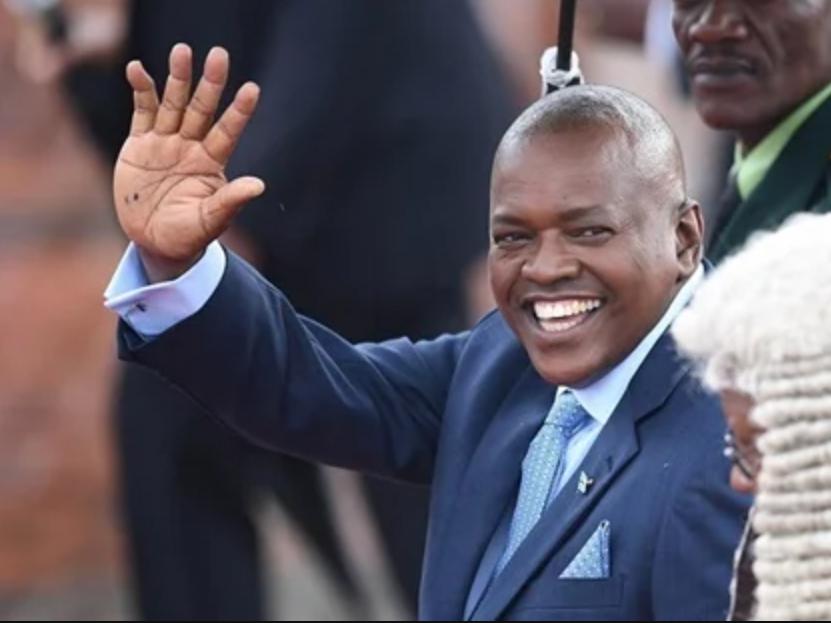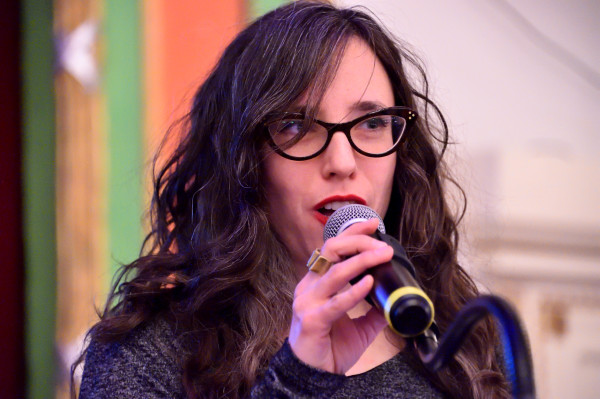Update on U.S. advocacy for LGBTQI rights in southern and central Africa
Colin Stewart is a 45-year journalism veteran living in Southern…
FIFTH IN A SERIES: Supportive words uttered in public from time to time were the main tool that U.S. diplomats cited in their efforts to promote LGBTQ rights in south and central African nations in the past year.

This is the fifth in an eight-part series focusing on the impact of President Joe Biden’s February 2021 order to U.S. government agencies to “promote and protect the human rights of LGBTQI+ persons around the world.” In April 2022, a total of 14 U.S. departments and agencies, ranging from the State Department to the Peace Corps, combined to create a comprehensive report about what they have done in response to that presidential order.
Related commentary: “Biden is silent when a loud message on global LGBT rights is needed” (Erasing 76 Crimes, November 2021)
Of the 32 African nations where homosexual activity is illegal, today’s post focuses on the Southern and Central African nations of Zimbabwe, Namibia and the Democratic Republic of the Congo, as well as Botswana, where a court overturned the nation’s anti-gay law last November. The report mentions development of a comprehensive country-by-country plan to support efforts to decriminalize homosexuality, accompanied by a few public statements in support of LGBTQI+ rights. Here are some excerpts:

The Department [of State] advocates for the repeal of laws in countries that criminalize individuals on the basis of sexual orientation and/or gender identity or expression. The Office of the Special Envoy for LGBTQI+ Human Rights is developing country-specific approaches using Department, interagency, and intergovernmental tools and resources to support decriminalization. Areas of engagement throughout the year include, but are not limited to, coordinating diplomatic responses to human rights violations and abuses resulting from the criminalization of LGBTQI+ status or conduct; providing emergency assistance; and advocating for policies, including supporting civil society efforts to repeal laws and prevent passage of proposed legislation criminalizing LGBTQI+ status or conduct.
The Bureau of African Affairs (AF) — On November 29, Botswana’s Court of Appeals upheld a lower court’s 2019 decision that struck down a colonial-era sodomy law that forbade “carnal knowledge of any person against the order of nature.” The decision ended a five-year legal struggle by LGBTQI+ advocates to overturn the nearly 60-year-old, discriminatory and outdated Penal Code clause. U.S. Embassy staff attended the November 29 decision and the October 12 Court of Appeals hearing on the case. The Embassy also coordinated a press statement with the UK, EU, Australia, France, and Germany celebrating the decision and congratulating activists for their long but successful struggle.
In Zimbabwe, the U.S. Embassy’s Deputy Chief of Mission (DCM) conducted a press interview in May to discuss the Department’s Human Rights Report and the importance of International Day Against Homophobia, Transphobia, and Biphobia. The DCM emphasized the growing recognition of LGBTQI+ human rights and said all should live their lives authentically and without fear. The Embassy featured an excerpt of the interview on social media. LGBTQI+ activists also welcomed the DCM to a special live interview for Pride Month where the hosts shared their insights on challenges the LGBTQI+ community faces in Zimbabwe, successes to celebrate, and their goals for enshrining LGBTQI+ rights in law. While linked to Pride Month, producers intentionally broadcast the episode in July to underscore that Pride happens every month of the year.
The Peace Corps Namibia team invites prominent LGBTQI+ activists from Out Reach Namibia to hold Q&A sessions at post that explore the host country context and educate staff and Volunteers on the presence and visibility of members of the LGBTQI+ community and how they occupy meaningful positions in various spaces of the community, and how they are part of the interconnected web of society.
Post level Pride and International Day against Homophobia, Transphobia and Biphobia (IDAHOTB) events and activities were documented in the Dominican Republic, Mexico, Namibia, Nepal, North Macedonia, Panama, and Peru, and included: virtual engagement with host country LGBTQI+ organizations and civil society; hosting virtual panels with LGBTQI+ Returned Peace Corps Volunteers; marching in local Pride parades; collaborative events and trainings with the U.S. Embassy; social media posts promoting LGBTQI+ human rights and non-discrimination; and educational sessions and panels exploring culturally appropriate strategies for promoting LGBTQI+ human rights and advancing nondiscrimination in the agency’s work (May-June 2021).
In Democratic Republic of the Congo (DRC), the U.S. Embassy expanded categories of data collection in its notice of funding opportunity for a grant promoting children’s rights. The grantee will be required to collect demographic data beyond the binary, with the addition of categories for teenage and adult transgender and non-binary participants.
In DRC, the U.S. Embassy’s promotion of Pride Month in June received strong praise and support internally and across partner embassies, but Congolese social media was largely critical. Ambassador Hammer’s June tweet about the U.S. government’s commitment to continuing “to promote and protect the human rights of LGBTQI+ persons all year round” drew negative comments on social media from the general public.




